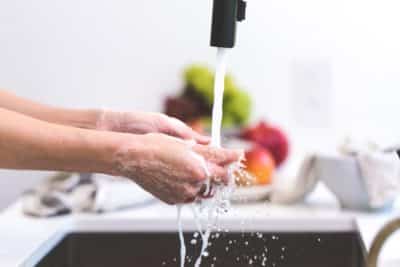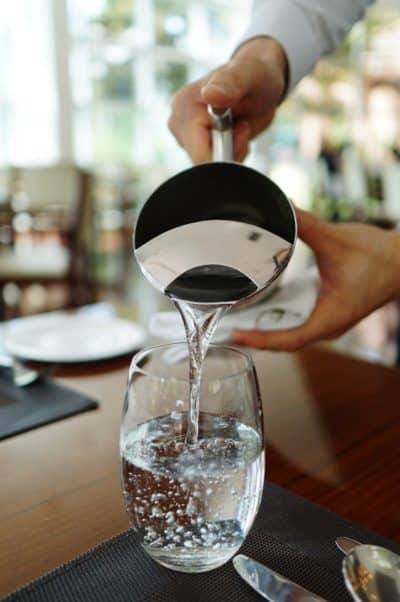When you start noticing white spots on your clothes, feel your fabrics getting stiffer after they are washed, or experience itching after taking showers, then this probably means that your water supply is filled with minerals.
Needless to say, hard water can damage your house appliances, clothes, and even have harmful effects on your skin. Yes, hard water contains minerals that can benefit the body, like magnesium and calcium; however, with excessive amounts of minerals, you will end up with brittle hair, dry skin, and soap that won’t create the needed lather.
In worst-case scenarios, hard water can even damage your plumbing system and water heaters. So if you have started noticing signs of hard water, you’d better move fast to prevent any costly damages. Here is how you can do this by turning hard water into soft water.
IMAGE: PEXELS
Hard Water Softener
The first thing you should try to combat hard water is water softeners. There are a variety of water softeners out there, but you will be making the best choice with a right, old-fashioned, salt-based softener since they always get the job done.
If you’re going to use the softener to wash your clothes, you can add it to the water inlet of the washing machine. This will turn the hard water into soft water before it is dispensed into the machine; hence, you will be doing the laundry with soft water and won’t have to use a water conditioner liquid every time you wash your clothes.
Reverse Osmosis (RO)
To do reverse osmosis, you will have to install a filtration system. This will allow the water to pass through fine filters under pressure to remove all contaminants at the molecular level to achieve optimum filtration. You will get distilled pure water, free of chemical and organic solids, as well as magnesium and calcium.
You should be aware, though, that most RO systems are only installed in one part in the house, meaning that it will filter the water at only one point, so this means that hard water will still pass through the hot water system and water heater.
To solve this, you will need a RO system with a bigger capacity. Unfortunately, RO systems come with downsides, like more significant water bills and the removal of all nourishment from the water.
Boiled Water
One of the most straightforward solutions is to boil the water in order to remove the minerals and other substances, causing the hardness. You will start with boiling as much water as you want in a large vessel, then let it cool down for a few hours in order to allow the minerals to sit down at the bottom of the vessel.
You can then pour the water out and leave the minerals in the vessel. This method is rapid and efficient, especially if you need to use soft water immediately. This process, however, can’t be used for washing machines, as the amount of water required for a washing machine is too large to be boiled in one go. In this case, you might want to try the next solution.
Baking Soda And/Or Vinegar
Vinegar is acidic, while baking soda is alkaline. They are both known for their efficiency for removing buildup, so you can use either, or both of them to remove the buildup created by the minerals in hard water.
Using baking soda or vinegar to soften the water is also one of the popular solutions to remove stains in sinks or glassware. Letting a paste of baking soda and vinegar to sit on the stain for fifteen minutes should do the trick. You should rinse it with water, then dry it out immediately, as you don’t want your newly cleaned surface to be stained again.
Chelation
Chelation is the conditioning of mineral ions in order to prevent them from combining with other chemicals and producing scaly buildup. What makes this process different than using softeners is that the conditioning process alters the charge of the mineral ions so that they don’t react with other chemicals.
This is useful because it doesn’t remove calcium and magnesium ions from the water, but rather forces them to become inert; hence, you won’t have to remove useful particles from the water. Unlike RO systems, you won’t have a problem with installation, as you will be simply using water conditioners.
Now that you have more than one method to treat your hard water. You can start right away and remove harsh minerals, harmful substances, and chemicals entirely from your water or, at the very least, make them inactive so that you can maintain a healthy water supply. Either way, you won’t have to deal with the damage caused by hard water ever again.
If you are interested in even more lifestyle-related articles and information from us here at Bit Rebels, then we have a lot to choose from.


COMMENTS